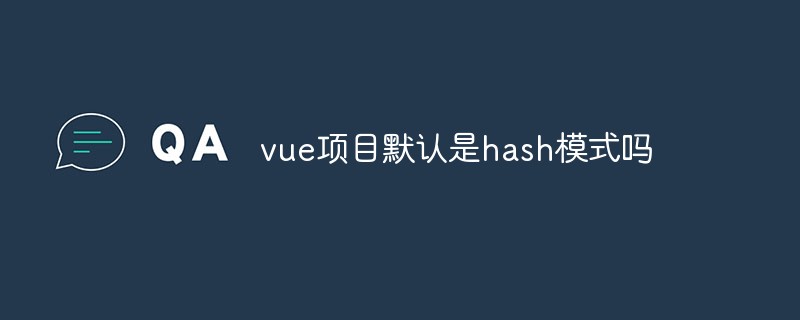
Vue project routing defaults to hash mode; this mode has a "#" sign in the URL. You can use the anchor point "#" to jump to the location corresponding to different IDs on the same page, using the hash of the URL. The value is used as a route to simulate a complete URL; the hash change will trigger the hashChange event and will be recorded by the browser. You can use the browser's forward and backward.

The operating environment of this tutorial: Windows 10 system, Vue3 version, Dell G3 computer.
The vue project is in hash mode by default
hash mode
1. Vue-router defaults to hash mode
2. There is a "#" sign in the URL
3. The hash value (the value after "#") will not be included in the http request , changing the hash value will not cause the page to be reloaded.
4. The hash change will trigger the hashChange event and will be recorded by the browser. You can use the browser's forward and backward buttons.
5. Hash is compatible with IE8 and above
6. A hashHistory object will be created. When accessing different routes, two things will happen:
HashHistory.push() adds a new route to the top of the stack of the browser's history
HasHistory.replace() replaces it with the current stack
For hash mode and history mode, the most direct difference is whether the address bar contains the "#" sign.
The routing of projects built with vue scaffolding defaults to hash mode.
Hash mode:

When creating a routing instance, add the mode: "history" attribute to use the history mode.
const router = new VueRouter({
routes,
mode: "history"})history mode:

[Related recommendation: "vue.js tutorial"]
The above is the detailed content of Is the Vue project routing in hash mode by default?. For more information, please follow other related articles on the PHP Chinese website!